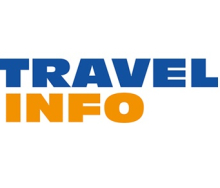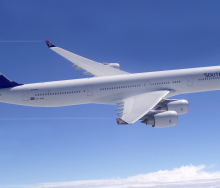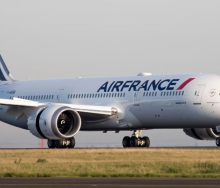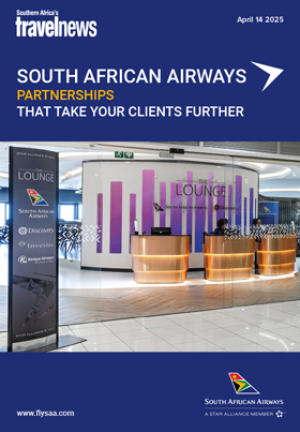Addressing the travel industry at the virtual Asata AGM held this week, ceo Otto de Vries recapped a difficult year under the crippling COVID-19 pandemic. But there were successes too for Asata and the industry, achieved through the association’s extensive lobbying efforts.
Effective Lobbying and Advocacy Pillar
Under Asata’s Effective Lobbying and Advocacy Pillar, the association focused its efforts with government on minimising the impact of different lockdown levels on the ability of people to travel.
“Travel restrictions have been substantially eased as a direct result of lobbying efforts and the industry delivered a set of health and safety protocols that gave government enough comfort to keep travel open, albeit with limitations, even during the second and third waves. These meetings were co-ordinated through the TBCSA, the umbrella body for travel and tourism, and the voice to government,” said Otto.
He added that a massive effort was made to highlight the plight of the travel industry and it was included in lobbying efforts through Nedlac channels to ensure that TERS claims were made available to the travel and tourism sector. There were a number of meetings with SA Tourism and the Parliamentary Portfolio Committee to provide guidance on the specific challenges, needs and concerns of the South African retail sector. The association also has a meeting scheduled on August 27 with National Treasury to discuss a number of legacy issues that remain a challenge for the travel industry. The Asata board has also committed financial support towards the legal costs incurred in the Rennies Travel appeal to the Supreme Court of Appeal in relation to the application of zero rating on international transport, as this case is critical to the industry’s earnings.
Asata is also driving the message that South Africa needs support from the government to give citizens the ability to have access to their vaccination status on the Department of Health’s EVDS platform. “As of today, many destinations continue to either keep South Africa on a red list or require fully vaccinated visitors to be able to show their vaccination status via a digital verification platform. Our lobbying efforts here have included engagements directly with the DG of Tourism and indirectly through Nedlac, Home Affairs and the Department of Health,” said Otto.
Airline matters
The Passenger Agency Programme Global Joint Council met nine times during the year, focusing on addressing COVID-19 challenges that included refunds, airline and agent risks, temporary local financial criteria and market challenges, including issues about fees and penalties being charged to agents during difficult operational and financial times.
Other meetings with Iata included Asata’s participation on the Risk Management Working Group where recommendations for the Passenger Agency Programme were delivered, based on commercial principles, balancing the risks and opportunities for both agents and airlines.
“For us, the first success from this engagement was the commitment by Iata to reassess the way that airline risk is managed in the agency programme, in particular the monies paid through BSP and settled with the airlines. The new model of airline risk management will be announced soon, but for us the critical part is how the travel agent and customer monies are going to be better protected. The second success was the delivery of an automated refund process called the Enhanced Refund Application in BSPlink, which includes an automatic process of the RAs within 60 days from the submission date, in alignment with Resolution 824r,” said Otto. (This was reported by Travel News on August 19, see here.)
“Finally, through our local Airline Passenger Joint Council, our team secured temporary Local Financial Criteria for BSP-ZA to cope with the COVID-19 impact. For us the successes included the validity period, being January 1, 2021 until December 31, 2022, reviewed every six months, and the amendment to section two ‘criteria for evaluation of agents’ account’. Nett equity, profitability and current ratio are now being calculated based on two categories – agents selling less than R1m in cash per month, and agents selling more than R1m in cash sales per month. Further, nobody is expected to meet nett equity or profitability for this calendar year, which captures the financial impact during this period due to COVID-19,” he added.
“In terms of the future of payment in travel, the lack of refunds due to COVID has highlighted the need for the industry to consider alternatives to the current BSP agency programme offered by Iata. This programme remains flawed, one-sided and based on principles that no longer support the commercial reality of the relationship between airlines and agents. For this reason, we have actively engaged with local and international payment providers and are confident that, over time, we can assist, advise and influence this critical component,” said Otto.
He concluded with a list of things he believes the industry needs to hold at the heart of what it does as it enters the final stretch toward recovery from the pandemic:
- Collaboration – working across the entire value chain to rebuild the industry and drive recovery.
- Leveraging supplier and customer networks.
- Managing uncertainty by driving traveller confidence and managing their fears and anxiety.
- Consolidating, by managing the complex workflows, dependencies, APIs and disparate systems integrations. Make the relationship your customers have with you (the agent) indispensable and the obvious route to booking their travel.
- Trouble shooting when things go wrong.















